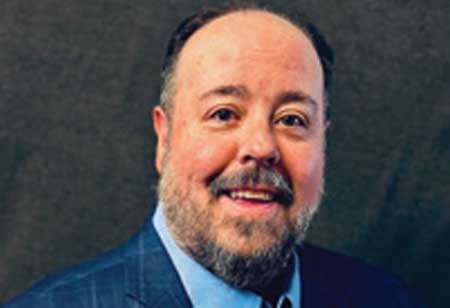Thank you for Subscribing to Healthcare Business Review Weekly Brief

Proactive Strategies for Healthcare Revenue Cycle Excellence
Healthcare Business Review
In his directorial role, Jerald spearheads Presbyterian's hospital billing operations with a keen eye for maximizing earned revenues and ensuring full compensation for services rendered.
Through the article, Archibeque shares his insights on the evolving healthcare landscape and his perspectives from decades of experience in revenue cycle management. He discusses strategies for navigating prevalent challenges like denials management, which involves analyzing denial trends, cross-departmental collaboration, and effectively appealing incorrect denials from payers.
What are some of the key roles and responsibilities that you have daily? What has the journey been like for you in the industry?
I oversee hospital billing for Presbyterian, including shared responsibilities for departments like cash posting, patient collections and revenue recovery, which encompasses our underpayments teams. These departments span both hospitals and physician billing and report directly to me. My primary focus for each day is to ensure revenue collection and confirm that we're receiving proper payment as outlined in our contracts with payers or fee schedules, whether they're government-based like Medicare or Medicaid or through other payer arrangements. My role is to ensure we capture all owed revenue for the organization.
As an industry veteran, what are some of the major challenges and trends in the marketplace today?
Our most pressing challenge currently revolves around denials. As a non-profit organization, every dollar counts, so we analyze denial trends to pinpoint areas for improvement. This involves collaborating with different units to refineworkflows or processes to prevent future denials. However, it’s also crucial to recognize that denials aren't always the provider's fault. Payers may incorrectly or unjustly deny claims, placing the burden of proof on us to demonstrate why the claim should have been paid. We closely monitor our overturn percentage to track our success in converting denials into payments.
Predictive analytics and AI are poised to revolutionize how we approach revenue cycle management challenges. From optimizing workflows to formulating appeals for denials, these technologies hold immense promise in bolstering efficiency and accuracy within our industry
Another significant challenge stems from our entire revenue cycle team at Presbyterian operating remotely. While the pandemic initially drove this transition, it has since become a permanent arrangement due to the nature of our work, which can be done anywhere in the country. Our focus now lies on keeping our remote employees engaged within their teams and the broader organizational culture. This has prompted us to rethink our hiring processes, enabling us to recruit talent nationwide.
Also, remote work has opened up new opportunities for us, requiring us to explore more flexible and creative approaches beyond the traditional Monday-to-Friday, nine-to-five schedule.
What do you foresee as the future trajectory for healthcare revenue cycle management, and what advancements are you particularly enthusiastic about?
One of the most thrilling developments we're diving into on the denial front is predictive analytics. For years, we've relied on built-in edits in our systems to catch certain denials before submitting claims. Now, with predictive analytics, we're taking it a step further by leveraging past claim adjudication data to forecast potential denials. Our analytics team has been collaborating closely with us on this front, initially focusing on coding denials and gradually expanding to encompass registration issues, authorizations, coordination of benefits, and eligibility verification.
For instance, predictive analytics can now flag anomalies like placeholders inpatient ID fields, such as all nines, prompting a review before the claim is sent out. This proactive approach empowers us to rectify potential issues upfront, enhancing our revenue capture efforts.
Looking ahead, predictive analytics and AI are poised to revolutionize how we approach revenue cycle management challenges. From optimizing workflows to formulating appeals for denials, these technologies hold immense promise in bolstering efficiency and accuracy within our industry. As we navigate the evolving healthcare landscape, staying at the forefront of these advancements will ensure financial sustainability and operational excellence for organizations like ours.
What advice would you offer to fellow professionals or aspiring professionals seeking to thrive in this rapidly evolving field?
One important advice is to avoid fixating on a single key performance indicator (KPI). Our industry provides a plethora of KPIs, each contributing to a more complex narrative. I often remind my team that one number alone doesn't paint the full picture, but when combined, these metrics tell a story akin to a book. For instance, a stellar cash month might seem like a win, but if revenue charges soared, it could indicate potential issues with aging accounts receivable (AR). By analyzing various KPIs together, such as AR aging alongside cash performance, young leaders can gain valuable insights into their organization's trajectory. Dashboards are invaluable tools for consolidating these KPIs into easily digestible formats, enabling leaders to proactively address emerging challenges rather than reacting after the fact.
So, my suggestion for new leaders is to embrace this multifaceted approach to KPI analysis, utilizing dashboards to monitor trends and anticipate potential issues before they escalate. This proactive mindset can help leaders stay ahead of the curve and navigate the complexities of healthcare revenue cycle management more effectively.









